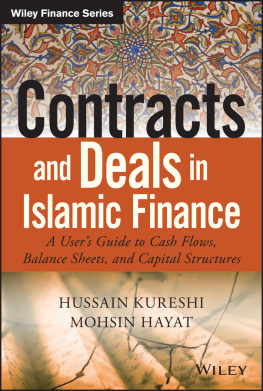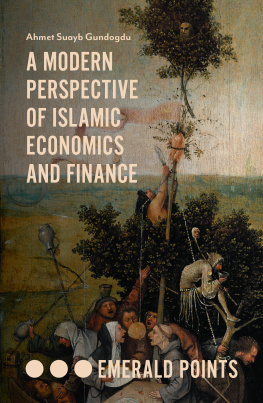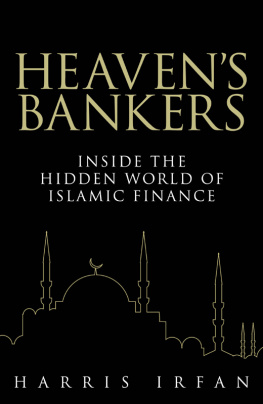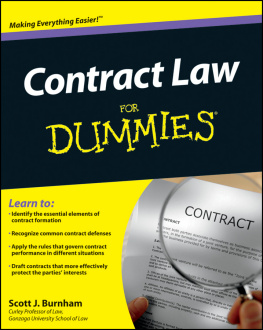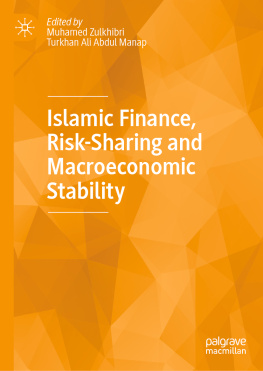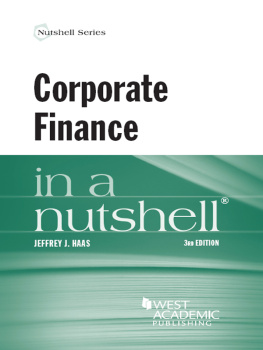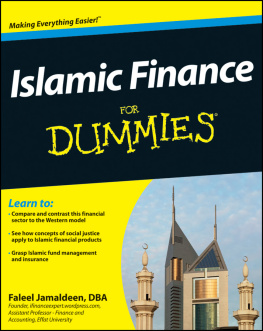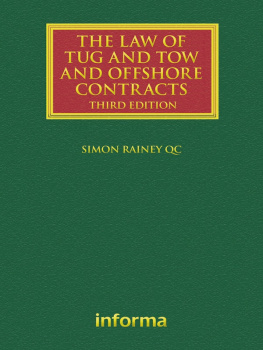
The Wiley Finance series contains books written specifically for finance and investment professionals as well as sophisticated individual investors and their financial advisors. Book topics range from portfolio management to e-commerce, risk management, financial engineering, valuation and financial instrument analysis, as well as much more. For a list of available titles, visit our Web site at www.WileyFinance.com.
Founded in 1807, John Wiley & Sons is the oldest independent publishing company in the United States. With offices in North America, Europe, Australia and Asia, Wiley is globally committed to developing and marketing print and electronic products and services for our customers' professional and personal knowledge and understanding.
Cover image: top: iStock.com/asikkk; bottom: iStock.com/JLGutierrez
Cover design: Wiley
Copyright 2015 by John Wiley & Sons Singapore Pte. Ltd.
Published by John Wiley & Sons Singapore Pte. Ltd.
1 Fusionopolis Walk, #07-01, Solaris South Tower, Singapore 138628
All rights reserved.
No part of this publication may be reproduced, stored in a retrieval system, or transmitted in any form or by any means, electronic, mechanical, photocopying, recording, scanning, or otherwise, except as expressly permitted by law, without either the prior written permission of the Publisher, or authorization through payment of the appropriate photocopy fee to the Copyright Clearance Center. Requests for permission should be addressed to the Publisher, John Wiley & Sons Singapore Pte. Ltd., 1 Fusionopolis Walk, #07-01, Solaris South Tower, Singapore 138628, tel: 65-6643-8000, fax: 65-6643-8008, e-mail: .
Limit of Liability/Disclaimer of Warranty: While the publisher and author have used their best efforts in preparing this book, they make no representations or warranties with respect to the accuracy or completeness of the contents of this book and specifically disclaim any implied warranties of merchantability or fitness for a particular purpose. No warranty may be created or extended by sales representatives or written sales materials. The advice and strategies contained herein may not be suitable for your situation. You should consult with a professional where appropriate. Neither the publisher nor the author shall be liable for any damages arising herefrom.
Other Wiley Editorial Offices
John Wiley & Sons, 111 River Street, Hoboken, NJ 07030, USA
John Wiley & Sons, The Atrium, Southern Gate, Chichester, West Sussex, P019 8SQ, United Kingdom
John Wiley & Sons (Canada) Ltd., 5353 Dundas Street West, Suite 400, Toronto, Ontario, M9B 6HB, Canada
John Wiley & Sons Australia Ltd., 42 McDougall Street, Milton, Queensland 4064, Australia
Wiley-VCH, Boschstrasse 12, D-69469 Weinheim, Germany
Library of Congress Cataloging-in-Publication Data is on file
ISBN 9781119020561 (Hardcover)
ISBN 9781119020578 (ePDF)
ISBN 9781119020585 (ePub)
This book is dedicated to the memory of my father, the late Muhammad Azam Kureshi, who left this world too soon, and my grandfather, Ali Muhammad Baloch. Both men served their countries and not their pocketsa rare breed.
Hussain Kureshi
To my mother, who held my hand and took me to the library; to my father, who writes every day and first encouraged me to write; and to my wife, a beautiful writer who keeps focusing and championing me.
Mohsin Hayat
Foreword
It is difficult to describe the pride with which I commend the reading of this fine piece on Islamic finance. Hussain Kureshi came into contact with OCBC Al-Amin (and thus me) through our scholarship program with INCEIF, of which he is an inaugural recipient. Hussain duly completed his CIFP with distinction and went on to engage with us as a research assistant. We certainly did not expect him to also come out with a book on Islamic finance. But that is exactly what his trail-blazing approach and academic prowess have produced. Doubtless, he has set the standard, no, raised the bar, of expectations from future scholars.
Islamic finance, or offering shariah-compliant financial products to clients, is no longer confined to the domain of Muslim customers anymore. We at OCBC Al-Amin have experienced strong demand for shariah-compliant products from numerous non-Muslims as well, evidently because the structures offered to them at the right price make sense.
Islamic finance has gone beyond the stage of just making the headlines; it is now making money and attracting the attention of issuers of credit notes and investors. With countries like Luxembourg, the United Kingdom, and Hong Kong announcing issues of sukuk, we feel that a book that clearly spells out the process flows inherent in the structures and contracts has become necessary for the education of industry participants and aspirants alike. No book has covered aspects of process flows, accounting treatments, risk analyses, and shariah analysis in a single volume. Not until now. Hussain and Mohsin have an easy writing style, which mitigates the inevitable technicalities that come with this type of book, gently walking the reader through the contracts and structures step by step. The net result is a painless ride for individuals not familiar with the religion or the language to understand the contracts and the products.
We are already looking forward to the sequel to this work, which I understand will focus on Islamic derivatives and structured products. For now, you will certainly have more than enough to digest and ponder when you turn the page. I hope you enjoy this book as much as I did.
Syed Abdull Aziz Syed Kechik
Director and CEO
OCBC Al-Amin Bank Berhad
Preface
Contracts and Deals in Islamic Finance is a unique idea for which I have my professors and industry peers to thank. It is a collaborative effort between two conventional bankers with Islamic roots and aims at addressing some basic fundamentals of Islamic finance and banking and explores complex enhancements to traditional contracts that are the pillars of Islamic banking.
This work we hope will be of use not only to students, beginners, and practitioners, but banks, central banks and governments that are trying to get a grip on this subject.
This work has been designed keeping in mind the cynic and the skeptic who feels that Islamic finance is a mere twisting of legal terms to achieve ends that replicate loans. To such a cynic we can only ask him or her to read the book. The coauthor of this book, who approached the subject of Islamic finance with equal skepticism, however, at one point had to question his own assumptions and expectations.
One key aspect that is explored is what do we as Muslims expect from Islamic financial institutions (IFIs)? If we expect IFIs to finance us with money and then forgive the resulting debt obligations later on, then this is an unrealistic expectation, as we see later that IFIs are not financing borrowers using their own money, but that of their depositors. If we expect IFIs to offer loans on generous terms, on terms that make losses for the IFI, then this is also incorrect as Islam allows a Muslim a right to profit making within certain conditions. If we expect IFIs to finance us money and only ask to be repaid when and if we as borrowers generate profits from investing the mobilized funds, then this expectation can be accepted but provided the debtor fulfills certain covenants of contracts and acts with a sense of responsibility as well.
Is it the purpose of Islamic finance to reduce poverty, or to extend money to poor people? This expectation can be addressed, but fundamentally, this depends on the type of IFI concerned. If the IFI is engaged in microfinance, then the answer would be yes, but if the IFI exists for commercial reasons, in that it exists to make a profit, then an IFI can no more be expected to give loans to the poor with high risk of default than a shoemaker can be expected to sell shoes at cost price to the poor.
Next page
